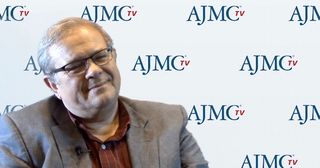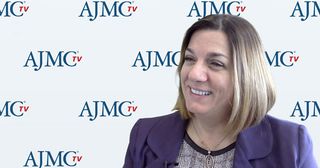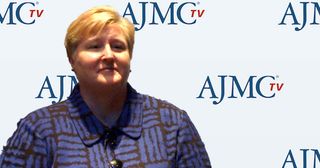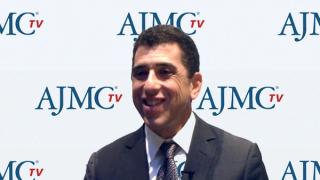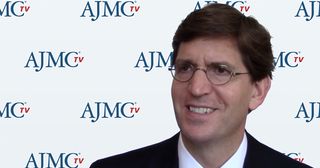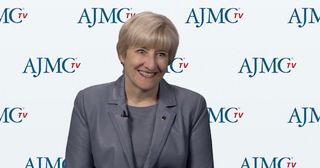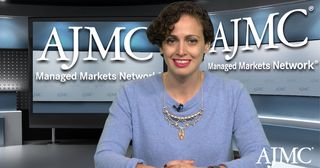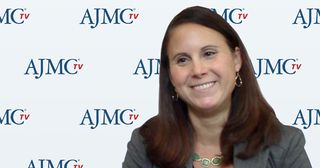
Alternative Payment Models
Latest News

Latest Videos

CME Content
More News

Recently, Barbara McAneny, MD, the current president of the American Medical Association (AMA), visited The American Journal of Managed Care®’s office for a wide-ranging discussion on new payment models, transforming care, and the work of the AMA.
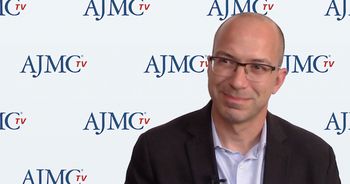
Systems, groups, and practices that haven’t yet joined the accountable care organization (ACO) movement will find it harder to do so if the proposed changes to the Medicare Shared Savings Program (MSSP) take effect, said Rob Fields, MD, assistant profession, family medicine and community health, Icahn School of Medicine at Mount Sinai, and senior vice president, chief medical officer, population health at Mount Sinai Health System.

The Community Oncology Alliance (COA) has been working with its member practices and some payer partners who have successfully implemented innovative care delivery and payment models to develop a 2.0 version of CMS’ Oncology Care Model (OCM). A progress report was presented at COA’s Payer Exchange Summit held October 29-30 in Tyson’s Corner, Virginia.

While practice transformation is vital, community-based clinics continue to struggle with emergency department (ED) use, hospitalization, and risk stratification as they identify ways to reduce unnecessary expenditures within their Oncology Care Model (OCM) practice.
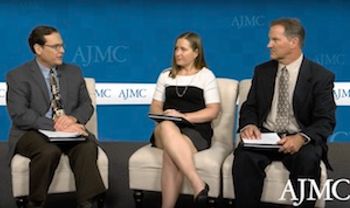
Lalan Wilfong, MD, moderated a conversation between Robert E. Baird, MD, CEO of Dayton Physicians Network, and Sarah Cevallos, chief revenue cycle officer for Florida Cancer Specialists and Research Institute, about current and future strategies for Oncology Care Model (OCM) participation, as well as key lessons from the OCM and how they can be applied in other reform models.
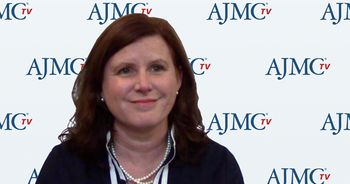
The proposed changes to the Medicare Shared Savings Program (MSSP) acknowledge the complexity of the program and bring more predictability and stability to MSSP, according to Katherine Schneider, MD, MPhil, FAAFP, president and CEO of Delaware Valley ACO.

Every week, The American Journal of Managed Care® recaps the top managed care news of the week, and you can now listen to it on our podcast, Managed Care Cast.
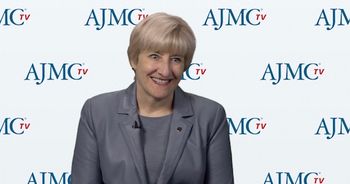
Practices that did not meet cost-savings goals in either the first or second performance periods of the Oncology Care Model (OCM) will likely leave the program, said Barbara L. McAneny, MD, president of the American Medical Association.
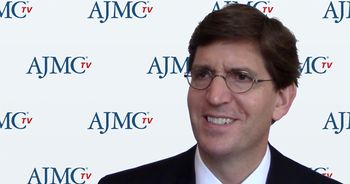
The proposed risk adjustment changes to the Medicare Shared Savings Program (MSSP) are welcome but moving accountable care organizations (ACOs) to risk too soon could harm the program, said Stephen Nuckolls, CEO of Coastal Carolina Quality Care.

Approximately one-third of all US healthcare payments in 2017 were tied to alternative payment models, with the remaining still tied to fee for service. The findings of the Health Care Payment Learning and Action Network report highlighted that even as payments move to value-based models, more spending in models with risk is needed.

Accountable care organizations (ACOs) in the Medicare Shared Savings Program vary considerably in how they treat men with newly diagnosed prostate cancer, according to a study that assessed whether the level of engagement in ACOs by urologists could affect rates of treatment, overtreatment, and spending in prostate cancer care.

The push to get accountable care organizations to take on risk faster could lead to more participation in Medicare Advantage, said Rob Fields, MD, assistant profession, family medicine and community health, Icahn School of Medicine at Mount Sinai, and senior vice president, chief medical officer, population health at Mount Sinai Health System.
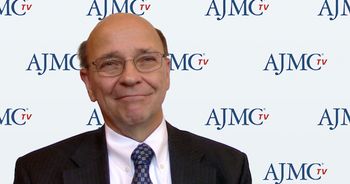
CMS’ proposed changes to the Medicare Shared Savings Program (MSSP) doesn’t represent a major shift in policy stance toward accountable care organizations (ACOs), said Joe Antos, PhD, the Wilson H. Taylor Resident Scholar in Health Care and Retirement Policy at the American Enterprise Institute.

Piecemeal solutions to implement value-based payment arrangements will not be able to effectively enact change. Authors in The New England Journal of Medicine argue that a range of complementary solutions need to be pursued simultaneously based on previously successful tactics on a smaller scale.

Finding a place for value-based payment with the fast paced innovation in oncology.
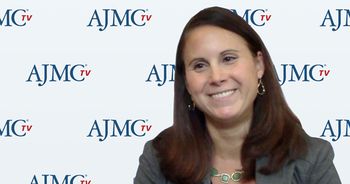
By encouraging more providers to take on risk faster, the current administration may actually be disincentivizing providers from participating at all, which would reduce the number of accountable care organizations (ACOs), said Allison Brennan, MPP, senior vice president of government affairs for the National Association of ACOs.
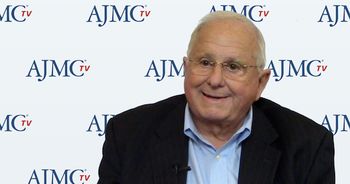
Private payers are getting more engaged in accountable care organizations (ACOs), said Clif Gaus, ScD, president and CEO of the National Association of ACOs.

Accountable care organizations (ACOs) have not had a significant impact on cancer care costs and utilization. While cancer care costs did decline from before the introduction of ACOs to after, there was no significant difference in spending decreases between ACO practices and non-ACO practices caring for patients with cancer.

The proposed changes to the Medicare Shared Savings Program that move accountable care organizations (ACOs) to take on risk in just 2 years is not going to be enough time for most ACOs, although some may be ready in that time, said Stephen Nuckolls, CEO of Coastal Carolina Quality Care.

Practices in the US Oncology Network received an average positive payment adjustment under the Merit-based Incentive Payment System (MIPS) of 1.90% for performance in 2017, and 99% of the Network’s physicians were in the top tier of performers. The maximum allowable adjustment is 2.02%. The adjustment based on a clinician’s performance in 2017 impacts the clinician's Medicare reimbursement for 2019.

Contracts for accountable care organizations (ACOs) can be very different depending on who the payer is, according to Katherine Schneider, MD, MPhil, FAAFP, president and CEO of Delaware Valley ACO.

CMS’ accountable care organization program, the Medicare Shared Savings Program (MSSP), could potentially be undergoing some big changes. During the recent fall 2018 meeting of the National Association of ACOs (NAACOS), the proposed changes were top of mind. Attendees were most concerned about how the faster timeline to taking on risk would impact participation, but were pleased with changes to the benchmark and risk adjustment.

At the National Association of ACOs Fall 2018 conference, private payers discussed how they are working with accountable care organizations (ACOs) to create new opportunities in the commercial market.

During the opening plenary and panel at the fall 2018 meeting of the National Association of ACOs (NAACOS), Adam Boehler, of the Center for Medicare and Medicaid Innovation, highlighted the fact that CMS has to provide predictability and simplicity to get more accountable care organizations to take on risk and succeed, but that those who are not "cutting it" should "get out of the way" for others.

Rob Fields, MD, assistant profession, family medicine and community health, Icahn School of Medicine at Mount Sinai, and senior vice president, chief medical officer, population health at Mount Sinai Health System, discusses how Mount Sinai’s accountable care organizations (ACOs) will have to adjust to the proposed CMS Medicare Shared Savings Program (MSSP) changes.



